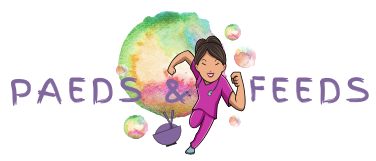I was inspired to write this post by talking to my big sister about my gorgeous little niece. She is in Grade 7 and is a little high-flyer – does very well academically, dances every night of the week a different style, plays multiple instruments, sings etc etc. When I commented that I was impressed at how much she is able to do and keep on top of (and perhaps suggested that maybe it was a little too much), my sister just laughed and said, “Pot calling the kettle black.” Ha ha. Well played big sis.
A huge issue for many kids when they hit high school, is the challenge of balancing multiple extracurricular activities and the sudden increase in academic work load and expectation.
In some cases, it might mean that one or two extra activities might have to go, but for others – a bit of help with planning out the week might mean the child can keep developing their talents in all of those activities that they love to do.
When I was in high school, I had to be involved in everything. It actually exhausts me just to think back on it, and I am actually pretty flabbergasted that I was able to participate in as much as I did. These were the extracurricular activities I was involved in:
- School volleyball team and basketball teams (in different years because interschool comp games were all on Wednesday afternoon)
- School concert band/orchestra (I played drum kit) + own band with my friends (we thought we were so cool ha ha)
- Debating team and public speaking competitions
- School art committee
- School dance troupe
- Interact club (kind of like Rotary but for high school kids – we used to fundraise for worthwhile causes, organise events etc)
- Student council
- Outside of school dance lessons: classical ballet, jazz and contemporary styles
Many of the school-based activities/sports had meetings or training during lunch times at school – and I meticulously recorded and planned these in my diary, and my dancing lessons plus a few other activities (like debating and concert band) were after school.
Despite being a really organised kid however, I remember a turning-point in about Grade 9 or 10, where I had a bit of a flip-out. I remember panicking because I just could not fathom how I would be able to fit in as much study as I thought I would need to pass my upcoming exams AND continue to do all the things that I did in addition to my usual school work.
Our school guidance officer knew me well (and saw me flip out) and made an appointment for me one day when I DIDN’T have a meeting or sports training on at lunch, to help me map out a STUDY PLAN. She was so kind, and I recall at that first meeting (as I sat there sobbing), she pretty much wrote the entire study plan for me. She made an appointment for me to come back a week later to see how I had managed the week she had planned, and to make adjustments. I think I went back about 2-3 times in total, until I reached a point where I suddenly thought,
“Hey… this isn’t so hard. I reckon I could do this myself.” And I could.
My point is, the skill of study planning AND managing multiple extracurricular activities is actually quite tricky. Most kids (and even some adults) needs to be TAUGHT how to do it (and many still can’t!!). Even the most organised kids might need a bit of guidance – SO HELP YOUR CHILD/TEENAGER BY SHOWING THEM (possibly a few times; or if you feel you can’t – ask the guidance officer at school to help). Once they have learnt this very important skill – they will be off like a shot and it will be a skill they will find useful for the rest of their life (or at least that is true if they become a doctor ;D ).
Dr Meg’s Top 5 Tips for Study Planning
- GET ORGANISED!! Have a calendar AND a diary
- A year calendar with a month-view is great to pin up infront of your desk – you can see how far away assignment due dates and exam week are for each month
- A DIARY is essential for the busy student (my school used to provide a standard school one – one week to one opening, and I still like this format)
- Record daily homework (and tick it off when it’s done)
- Stick your school subject timetable in the front
- Write in due dates for assignments/exams and work backwards to schedule in preparation time
- COLOUR CODE your subjects – it will help you not to miss things
- PRIORITISE assessment tasks
- Work on the assignment that is due first
- If you have more than one assessment due at the same time (eg exams) – work on the hardest one first whilst you have the most energy
- Draw up a study plan for each week (see below) – you can do this weeks in advance (eg in the lead up to exam block/assignments) and adjust as necessary.
- Your plan will change as assignments are due/exams get closer
- It helps because it breaks big tasks into smaller, more manageable chunks
- Create “To-do” lists – take great pleasure in CROSSING OFF your jobs as you complete them
- For the day
- For the week
- For the month
- For the term
Here’s HOW YOU WRITE A STUDY PLAN (I will run you through a case example later this week)
- Get yourself a study planner template (see photo in gallery of one I’ve hand drawn – which you can use and print out if you want) – photocopy it blank, or save a template electronically to re-use

- Block out all SCHOOL HOURS

- Block out all extracurricular activities for the week

- Write out and decide on how many hours of work/study are needed for each subject
- Make sure you don’t forget to block off extra time for assignments as needed
- Extra study time will need to be allocated in the weeks leading up to exam block
- As a rough guide, about 4-5 hours of homework per week is usually appropriate for junior high school (as per the Queensland Department of Education website)
- Leave time on the weekends for “relaxation/chill out time” and as spare time in case catch up/extra time is needed for assignments/exam prep
- Make sure you build in flexibility into the timetable, to account for variances in the subject workload (ie there might be an assignment that needs more time in one week than another)
- Make sure you take BREAKS (you can physically write these into your Study Planner, or you can just take 5-10 min every 45 min-hour (or as you need to) )
- Actually FOLLOW THE STUDY PLAN and make adjustments from week to week and take great pleasure in crossing off each study block as you complete it.
*** I will go through a case study with you later this week so you can have a practise!!
Getting your Study GAME-FACE ON ***(Parents: you will definitely need to help with this bit)***
- Set up the study space well
- Have a desk that is big enough
- Have a cork/whiteboard to pin up reminders (you can pin your month-view calendar to this)
- Keep your desk TIDY and UNCLUTTERED (use a bookshelf, desk trays, organisers)
- Have a comfy chair – you will be spending a while in it
- Have good desk lamp – a good light source will help you stay awake and keep you from feeling tired
- Have cool stationery – it will make you happier to do work! Coloured paper, highlighters, coloured pens, sticky-notes/tags, colourful folders/workbooks – they all help (and at Kmart – they are all as cheap as chips)
- Don’t leave things till the last minute (I can hear my mum in this sentence…)
- Use a study planner, diary and calendar
- Plan ahead by working BACKWARDS from assessment due dates to make sure you have enough preparation time
- Do the hardest stuff first
- It will make you more efficient
- You can do easy stuff when you’re tired (but you can’t do hard stuff)
- Do what helps YOU to concentrate
- Turn off the TV, radio if that’s what helps you (I unfortunately, cannot turn my kids’ volume off, so I wear a pair of noise-cancelling lawnmower earmuffs instead)
- If you prefer to have music, then keep the volume low (I can’t do this… I always end up writing down the lyrics to the song that is playing instead of the assignment)
- Turn OFF your internet/Wifi if you don’t need it to look stuff up
- Put your smartphone AWAY!!
Parents, you can ALSO help by trying to keep little siblings who might distract or disturb away from the study area of your high-schooler and yourself being a considerate housemate (don’t turn the TV on too loud or in the room where they are studying, keep interruptions to a minimum etc).
On Wednesday I will walk you through a case study and show you step-by-step, how to write a study plan.
With a bit of organisation and planning, what might seem impossible to your high-schooler – is actually entirely possible. I hope this helps!
Let me know how you go – and SHARE YOUR TIPS with other parents if you have some!
See you Wednesday!
xxDr Megs

